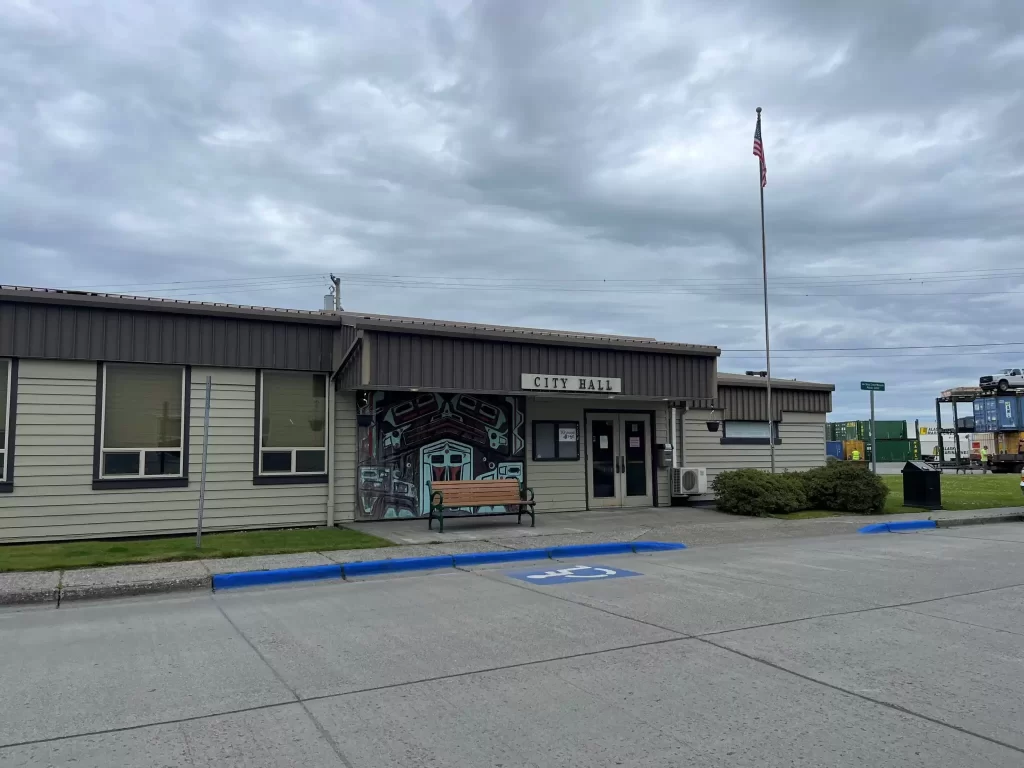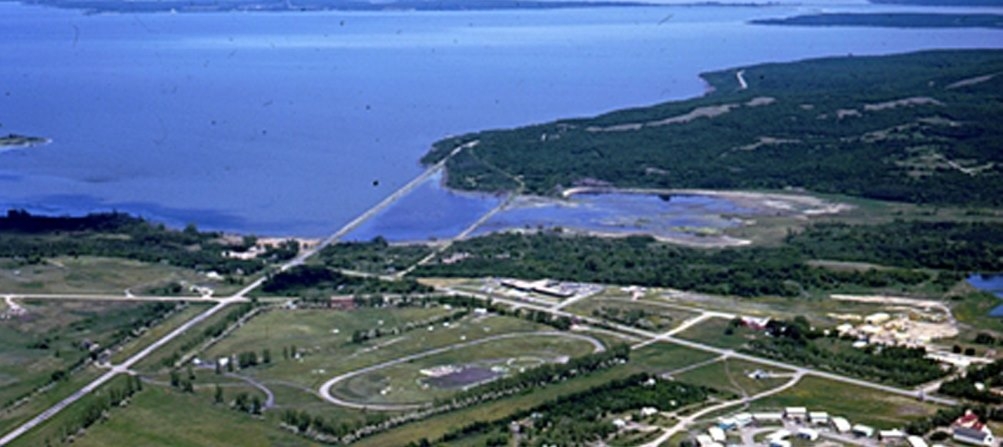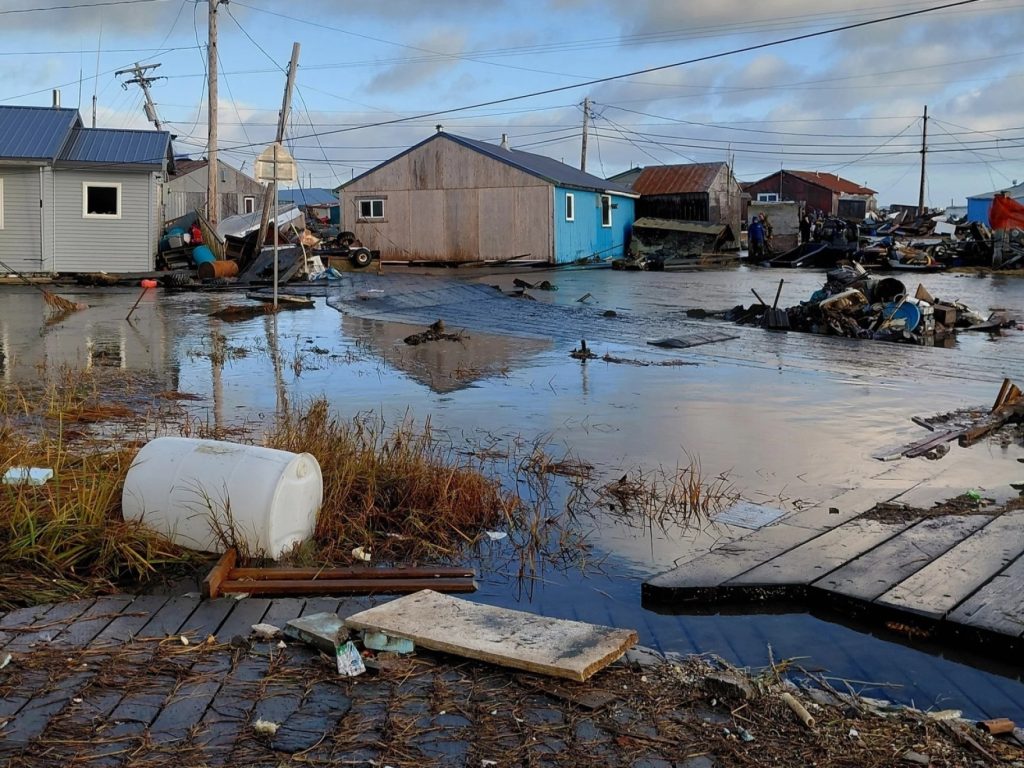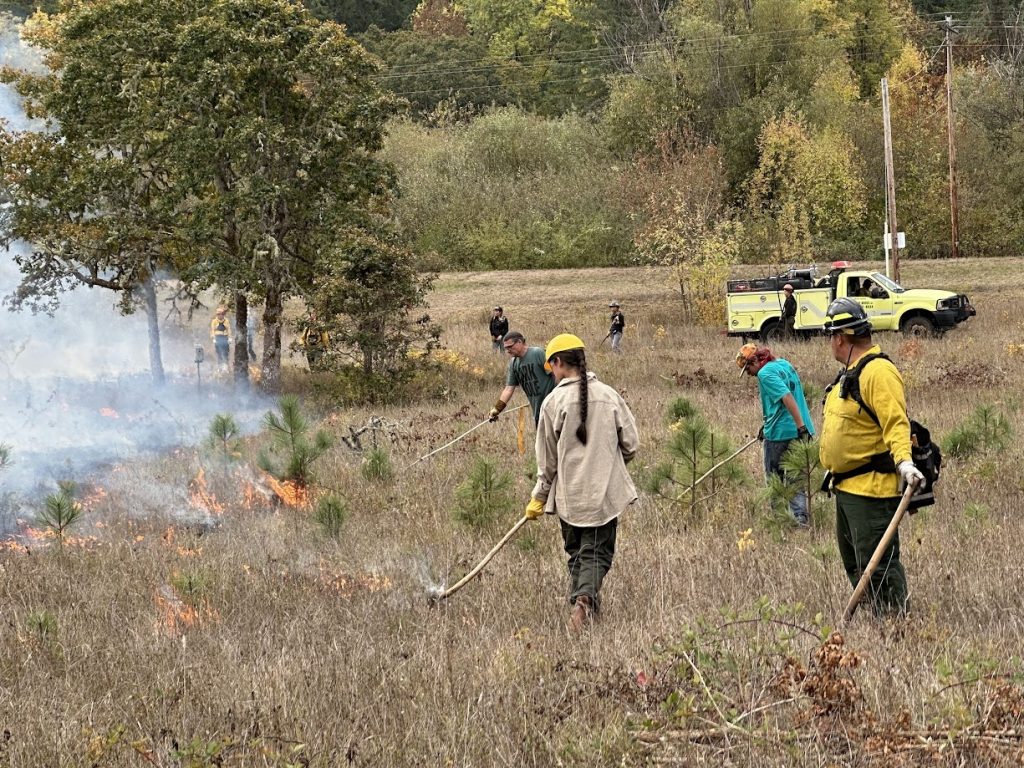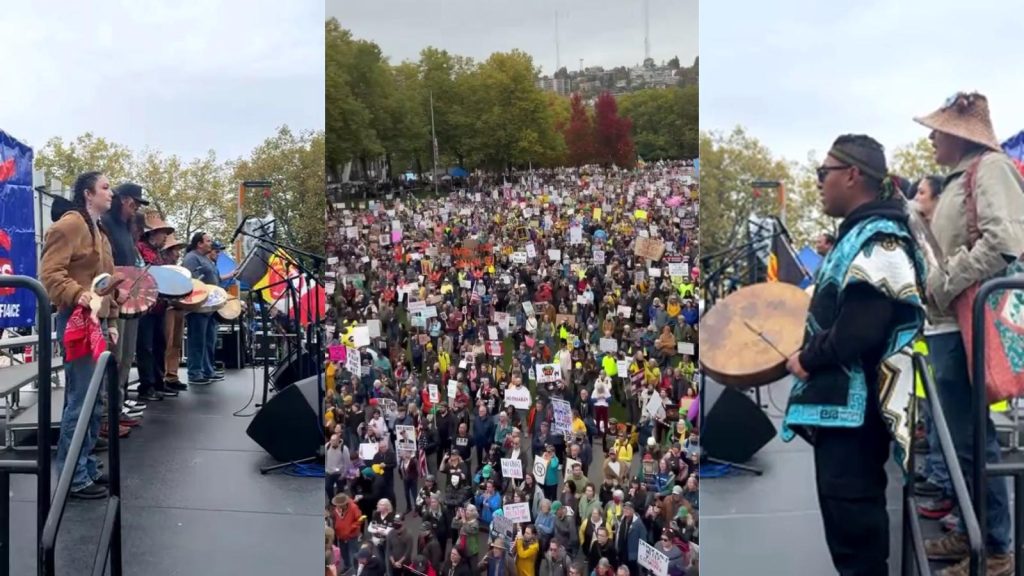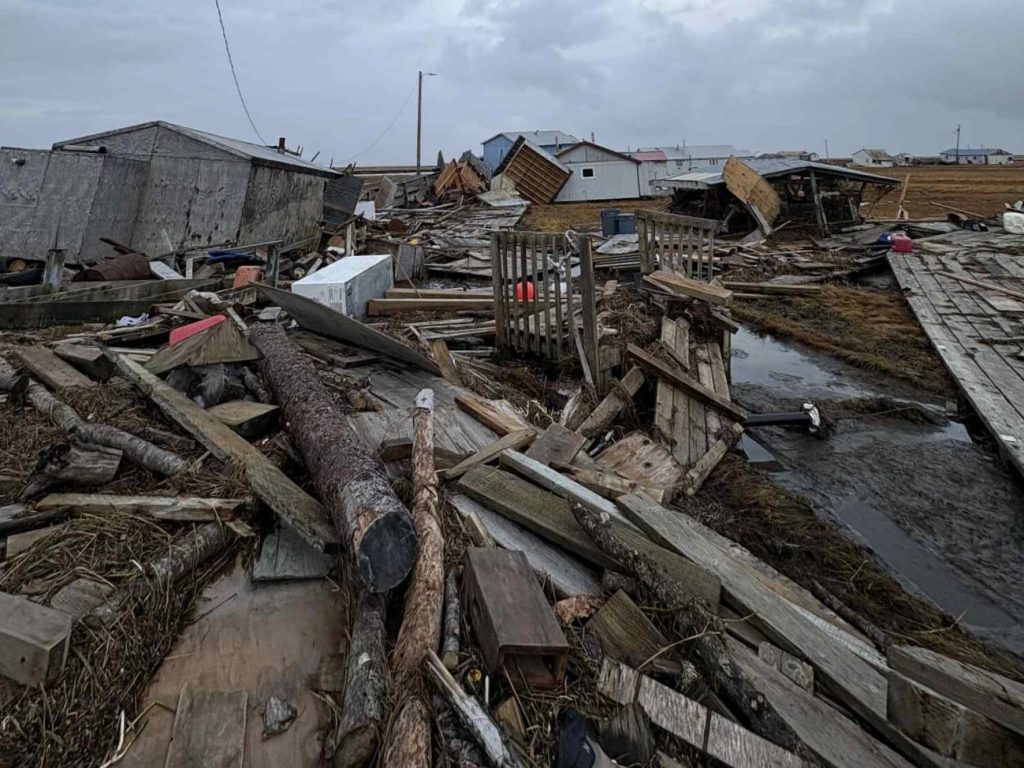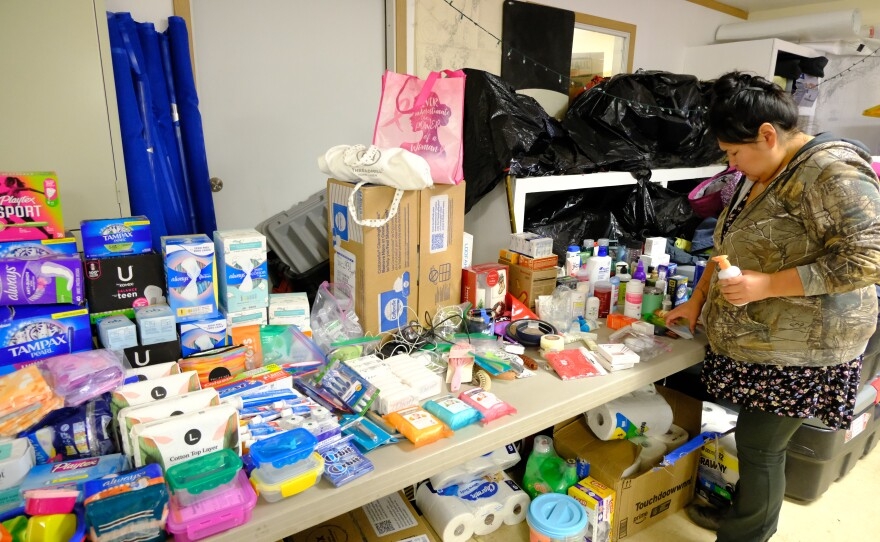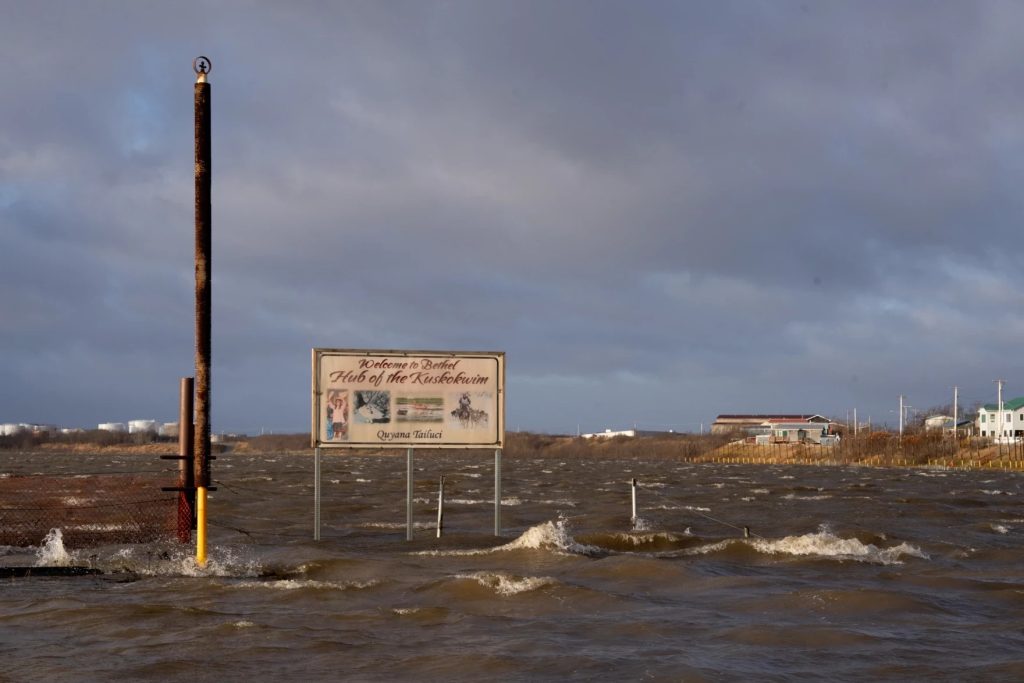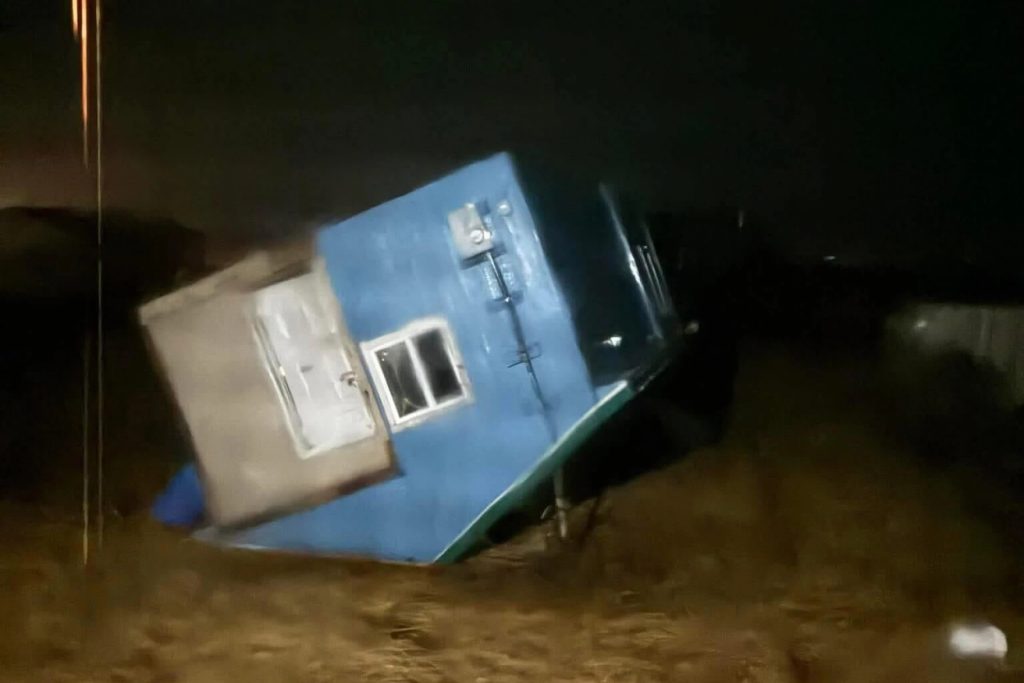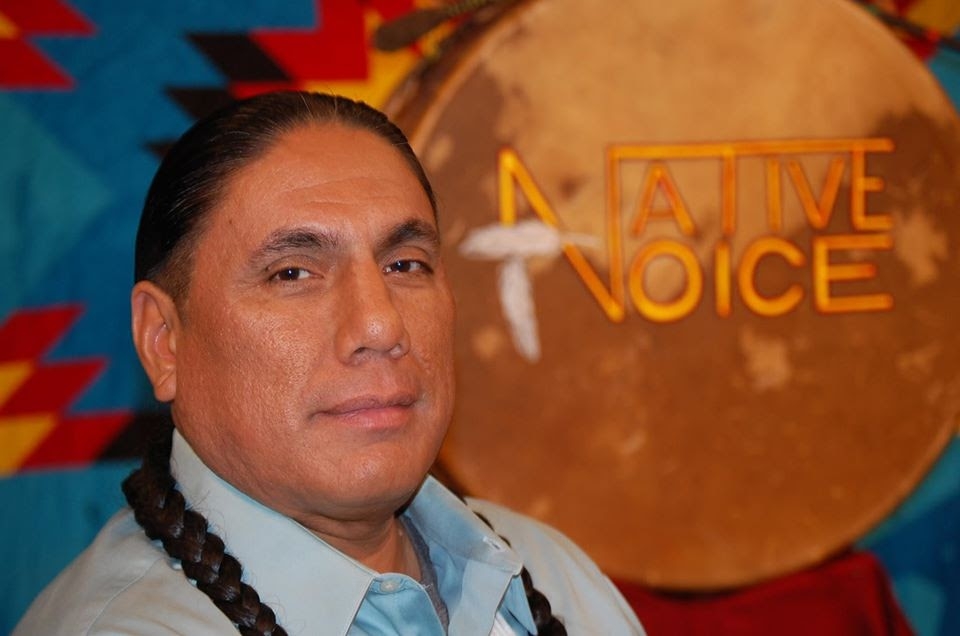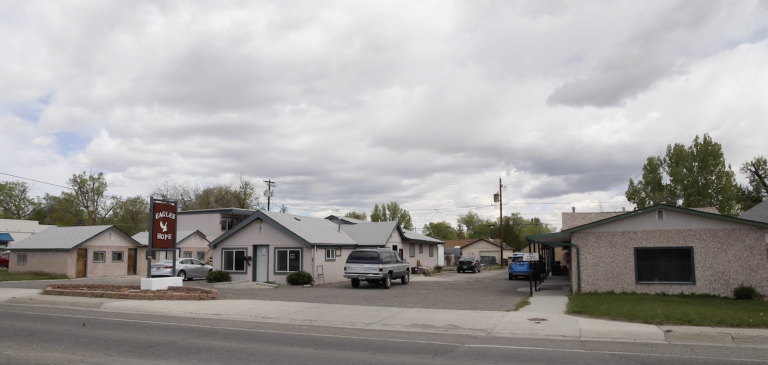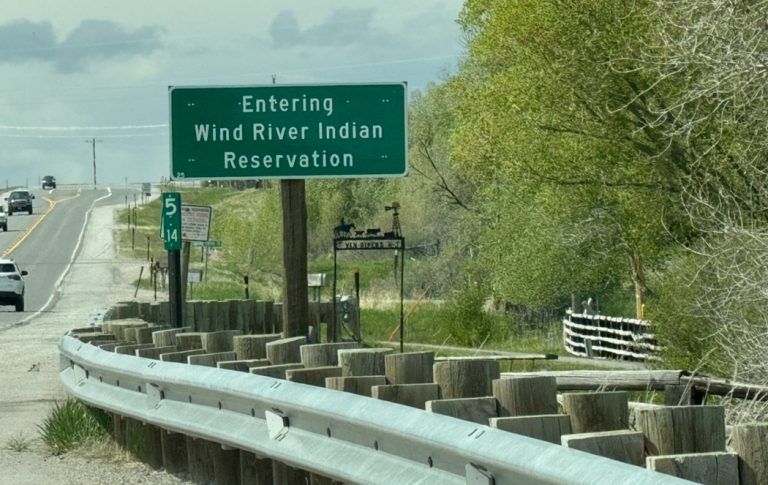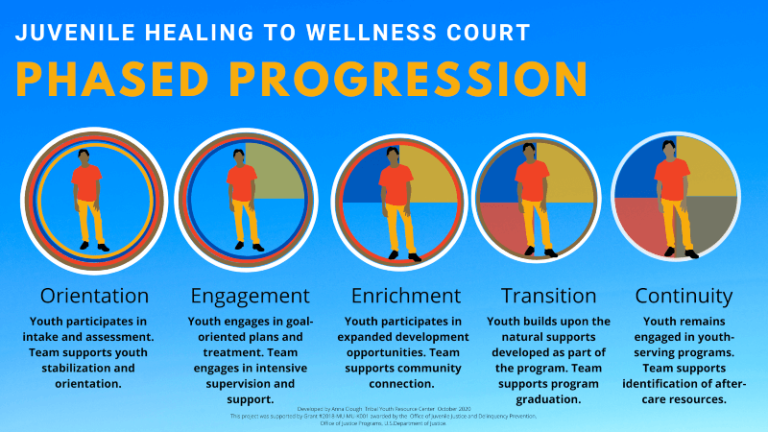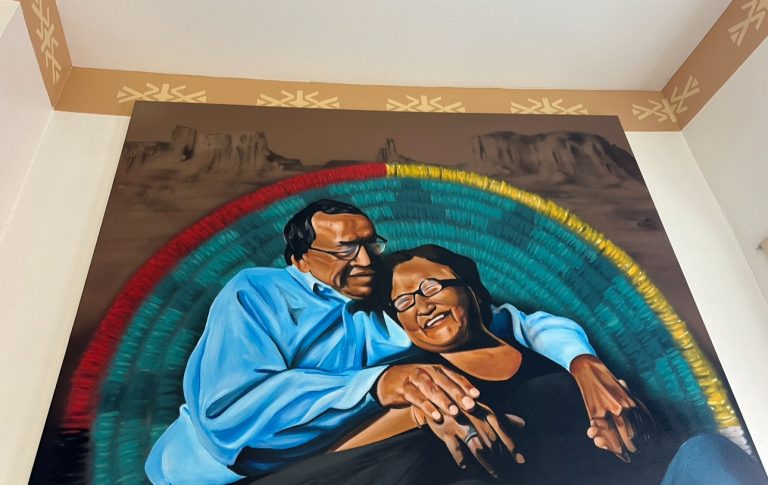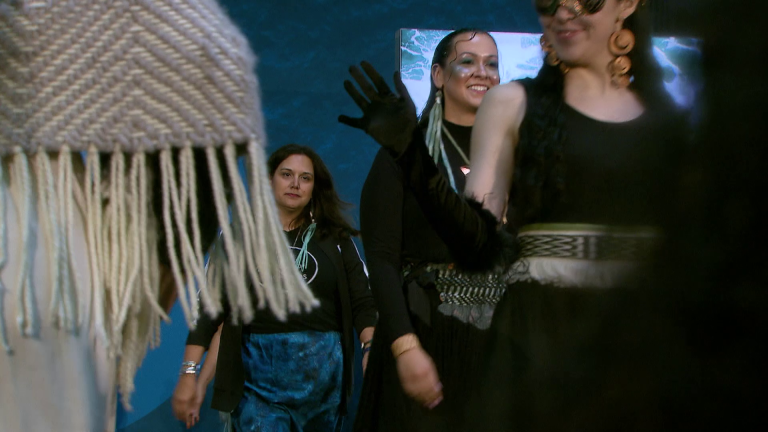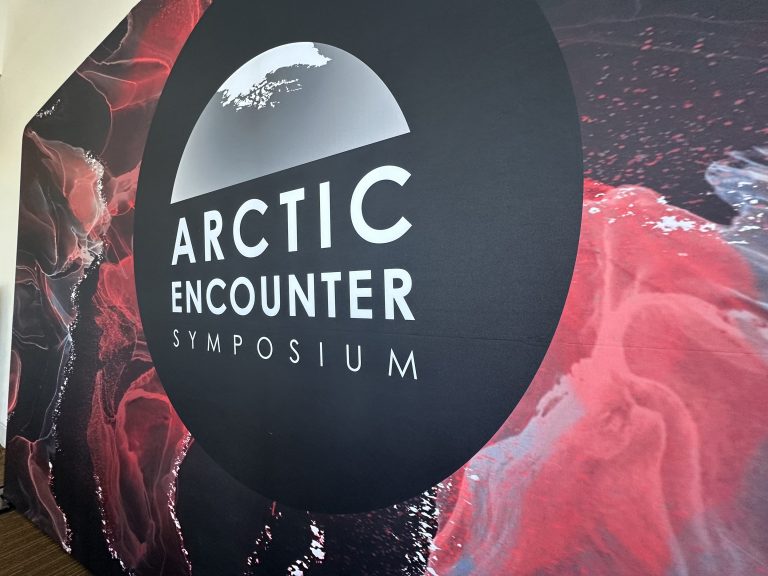Podcast: Play in new window | Download | Embed
Photo: The Gila River Indian Community’s Sacaton Market was unveiled during its grand opening on October 23, 2025. (Gabriel Pietrorazio / KJZZ)
The Gila River Indian Community in Arizona has long relied on convenience stores to feed its 13,000 residents, who otherwise may have to drive as far as half an hour away to neighboring cities with grocery stores.
But as KJZZ’s Gabriel Pietrorazio reports, a new market – a decade in the making – has opened much closer to home.
Duncan Winston is with Gila River Development and says the tribe’s new 11,000 sq. ft. supermarket in the heart of Sacaton is much more than a store.
“This isn’t a Bashas, it’s not a Safeway or a Walmart.”
It’s a symbol of their sovereignty since few, if any, tribes outright own their own grocers.
“We don’t want to leave that in the hands of a larger chain to determine who gets what – we want to be able to fight for ourselves and bring the necessary goods to our community when we need them.”
From fresh produce and butchered meats to a deli serving local favorites, like the work’s burger.
“One of the biggest demands from the community was, ‘You got to bring the works back.’ And so we’ve done that.”
But that doesn’t come cheap, because of what some refer to as “rez-flation”.
“We have experienced it here. I mean, it’s difficult finding reputable vendors who are willing to bring us goods and services at a fair price. Although we are rural, we are a lot closer to the metropolitan Phoenix area than a lot of the other tribes in Arizona.”
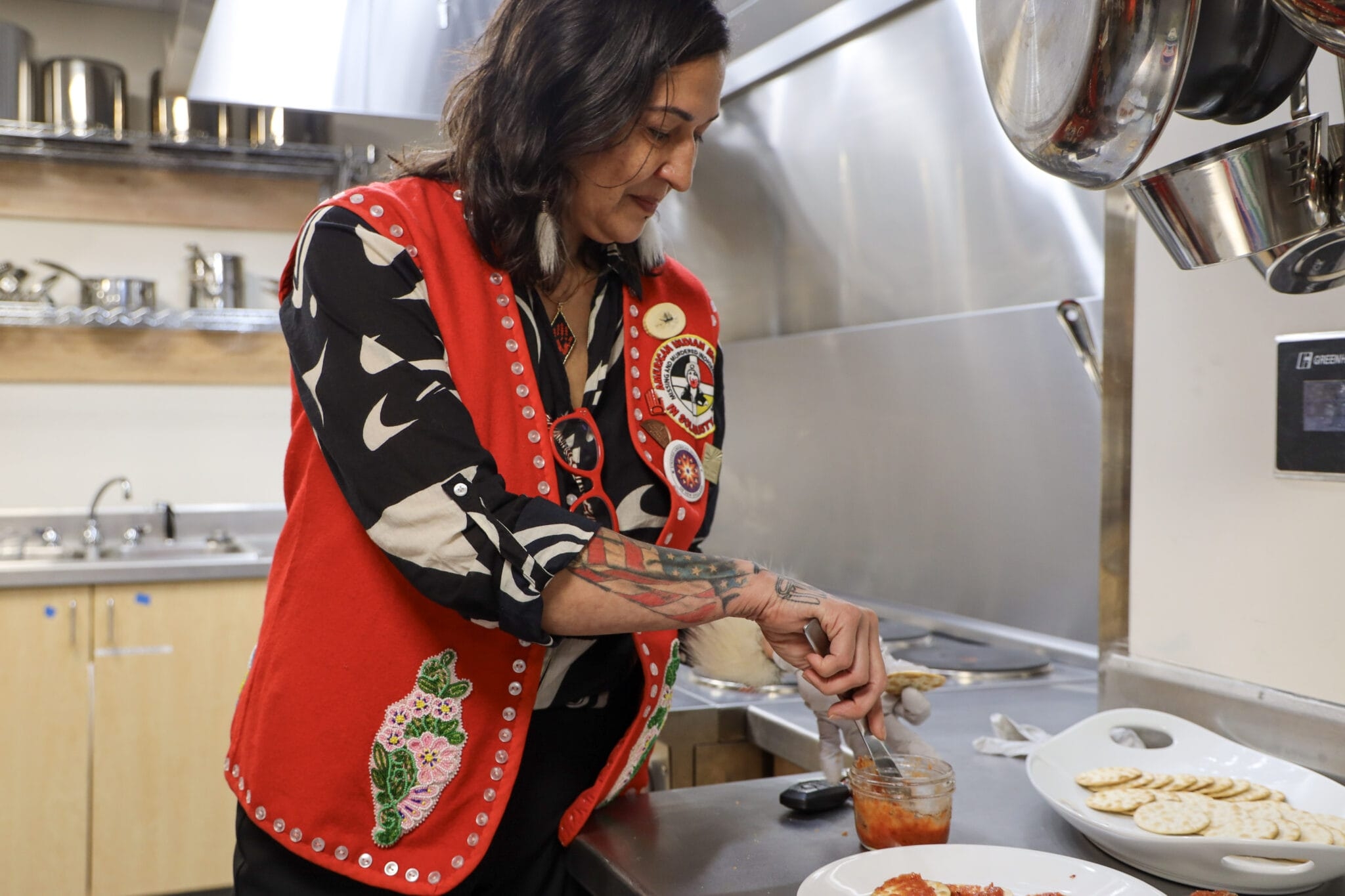
S’eiltin Jamiann Hasselquist spreads some cheese kaháakw on crackers in SHI’s Traditional Foods and Medicine Kitchen on October 13, 2025. (Photo: Yvonne Krumrey / KTOO)
Sealaska Heritage Institute (SHI) recently opened its new science education building.
The space — and the educators inside — are working to combine traditional knowledge with new technology to expand access to science for young people in Juneau, Alaska.
KTOO’s Yvonne Krumrey reports.
At a ceremony, Lingít language professor X̱’unei Lance Twitchell said that bringing traditional ways of being into the present isn’t a contradiction.
“It’s not a ‘living in two worlds’ situation. It’s living as an Indigenous person with multiple languages and multiple identities, and being just fine with it. You don’t have to be just one thing.”
And the new SHI Indigenous Science Building around the corner carries that sentiment in all the services it offers.
The building on Heritage Way hosts a digital media lab with a podcast booth and video production software, an Indigenous science research lab that studies cultural resources like seaweed and clams, and a makerspace with a digital woodcarving machine.
That last one made nametags instructors are wearing as they lead tours of the new building.
In the Traditional Foods and Medicine Kitchen, instructor S’eiltin Jamiann Hasselquist says she and others are bringing old ways to process and preserve food into the present.
“Whatever people can dream up that they would like to do in this kitchen, I think that we could try to make their dreams happen.”
With freeze dryers, pressure cookers, dehydrators, and space to build traditional drying racks, Hasselquist said they are making and preserving traditional foods that elders would make when she was a kid, like cheese kaháakw — a rich and smoky paste made of fermented salmon eggs.
She scoops some out of a glass jar and spreads it on a cracker for anyone who wants to try it.
“Someone tasted that cheese kaháakw, and they took one bite, and they said, ‘Oh my gosh, I’m getting emotional. I haven’t tasted this for 30 years.’ It’s been three decades, and they thought that they would never try it again.”
Elders have been approaching Hasselquist with foods they remember from childhood, but don’t know how to make.
“So if we could have workshops and share that knowledge, and we’re rebirthing, you know, this, this Indigenous way of living and being.”
Next, she wants to find out how to make cold-pressed seal grease.
Get National Native News delivered to your inbox daily. Sign up for our daily newsletter today.
Check out the latest episode of Native America Calling

